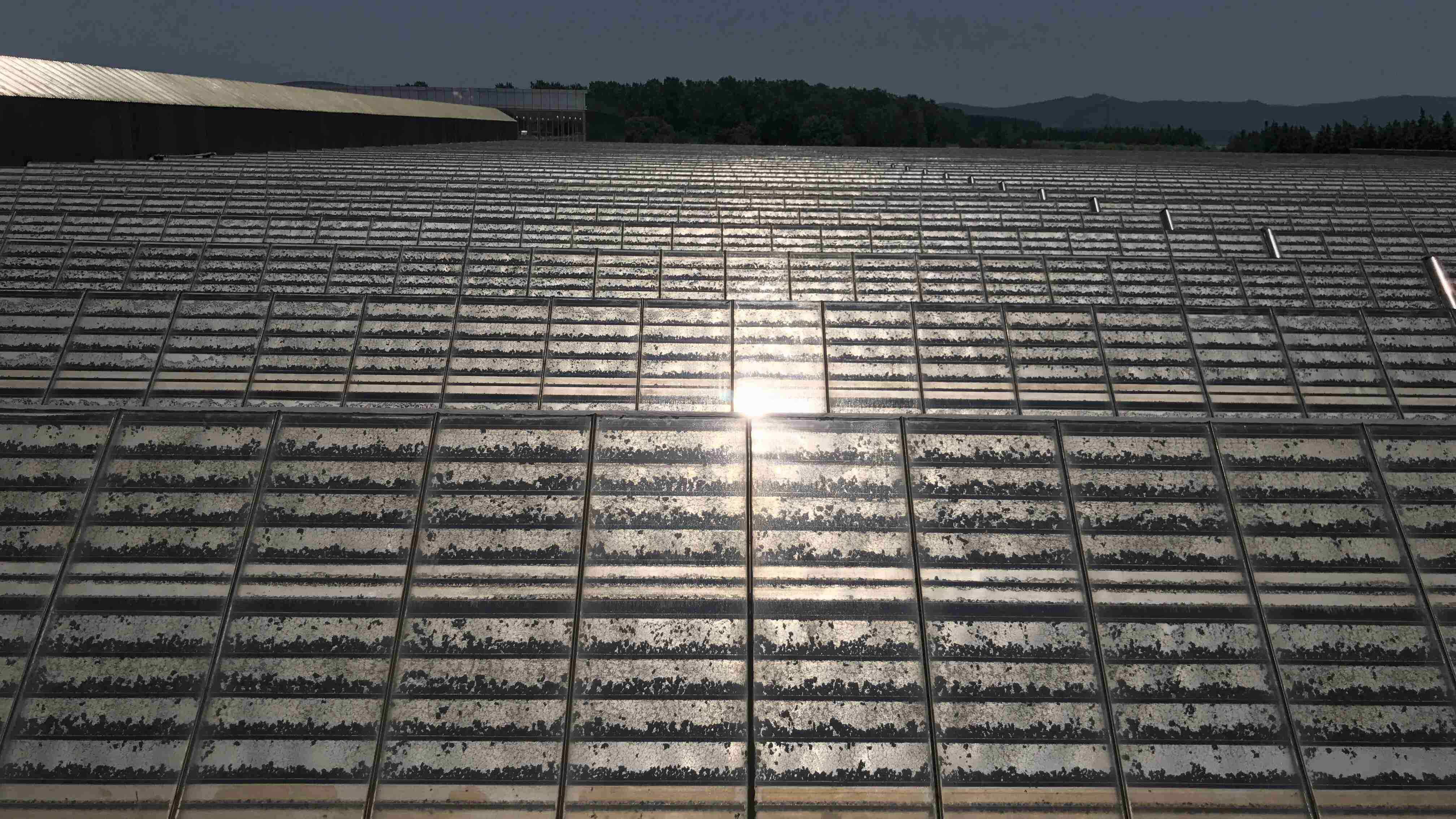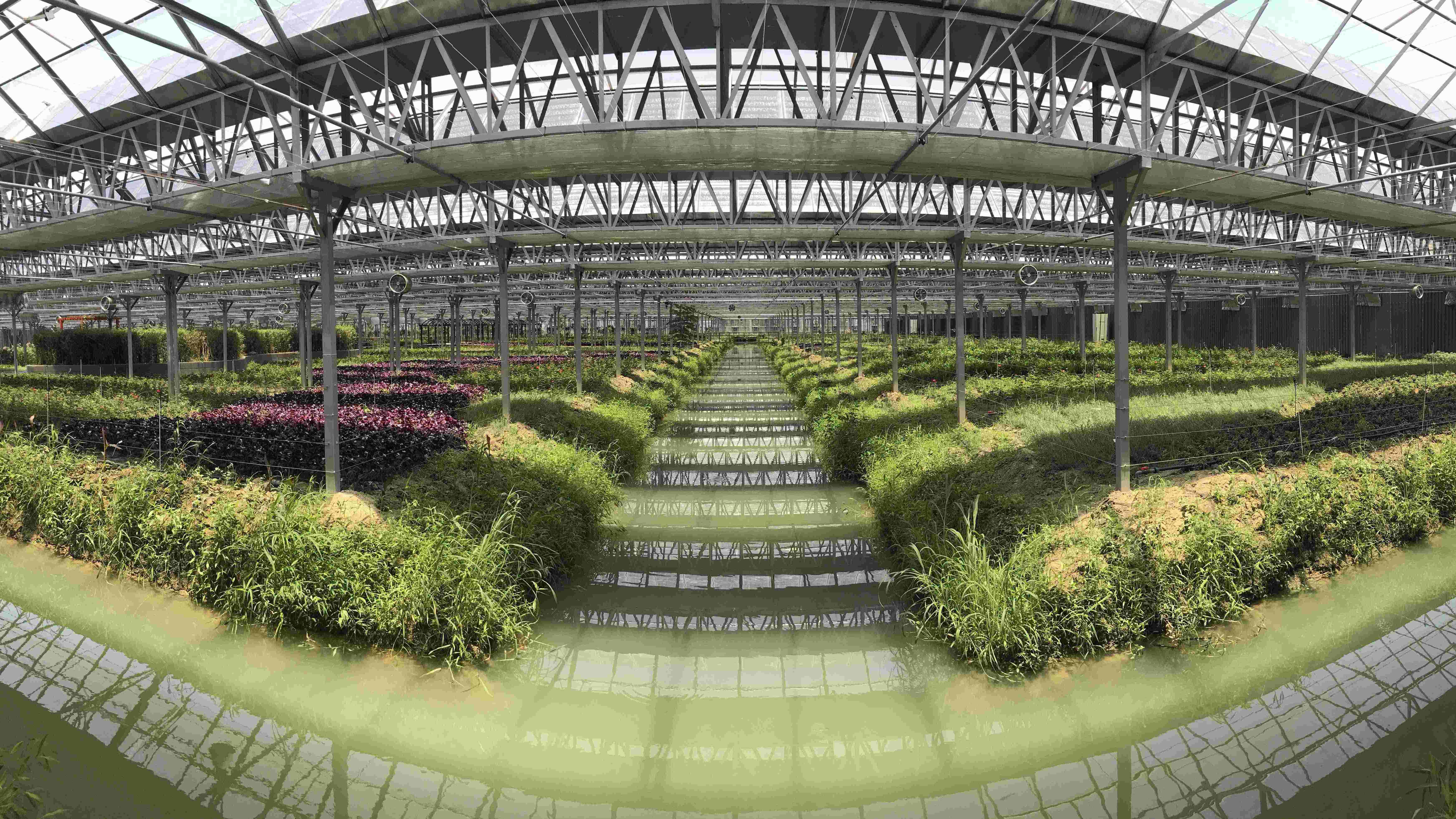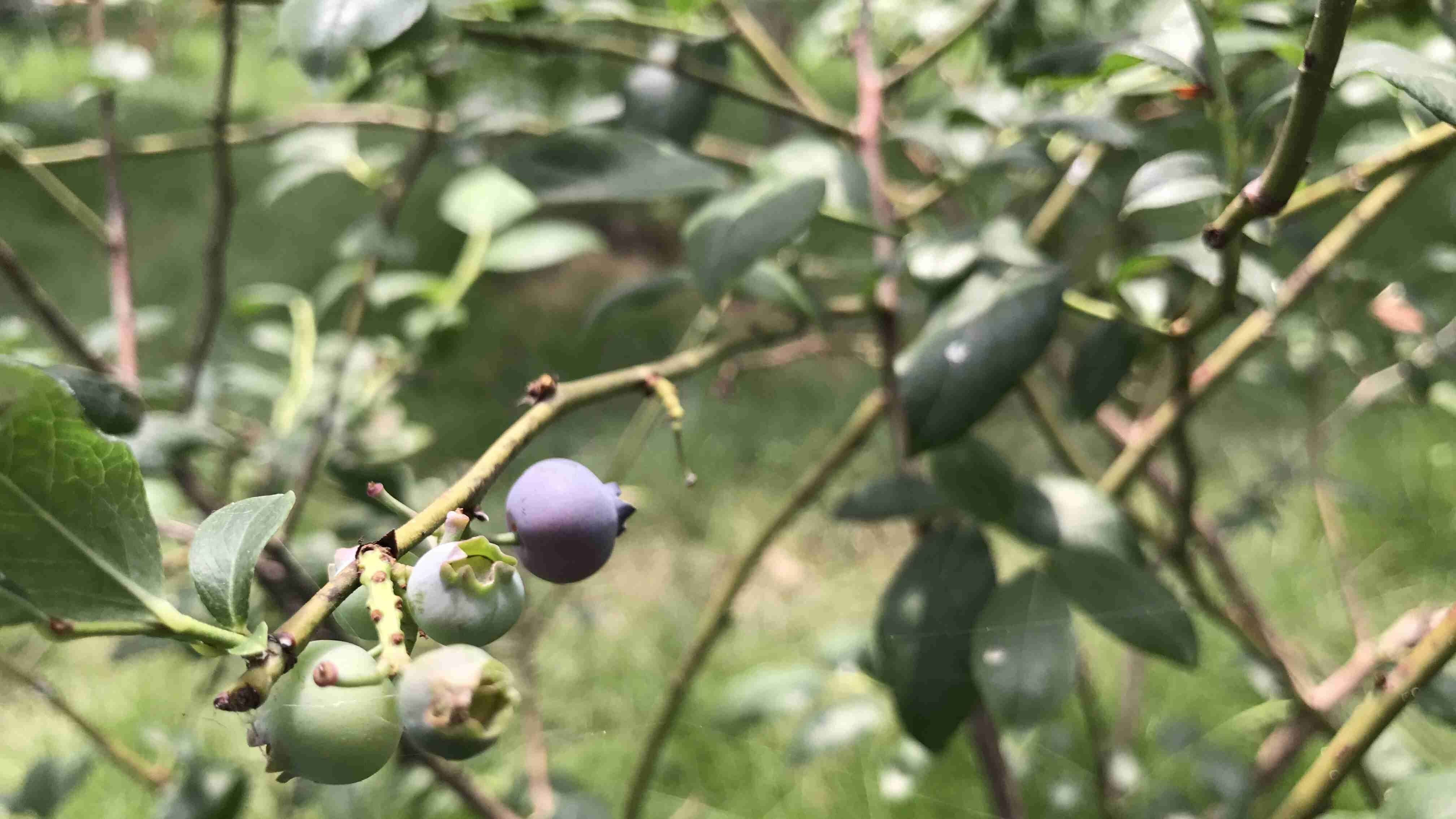By CGTN's Ye Xiaoqian
An innovative, new treatment process is making positive use of the blue-green algae that has infested one of China's five main fresh water lakes, Taihu Lake, in eastern Jiangsu Province.
The blue-green bloom in the lake has knocked out water supply, wrecked havoc on its ecosystem and turned its once clear, dazzling waters into a putrid, tea-green sludge.
Clean up is not easy, but compared with previous treatment processes, the new approach is much less labor-intensive, thanks to its automatic re-floatation installation.

Collecting the blue-green algae / CGTN Photo
Once the blue-green algae are collected, the treatment process begins with a stack-screw dehydration machine and cloth hopper to reduce water content by 10 to 15 percent.

Stack-screw dehydration machine /CGTN Photo
The algae are then moved to composite membrane low-temperature evaporation boxes two meters above the ground level.
Ultraviolet rays from the sun kill the parasitic ova and pathogenic microorganisms, further reducing water content in the blue-green algae to just eight percent, and removes the smell as well.

Solar composite membrane low-temperature evaporation boxes /CGTN Photo
The highly-organic dried residue can be used to make activated carbon.
It is already being exported, selling at 600 US dollars a ton in the United States, with it being turned into plastic mats, shoe soles, and 3D printing materials.

3D printed model made from dried blue-green algae /CGTN Photo
Beneath the membrane boxes sited large greenhouses, where crops or landscaping plants are grown. The water that evaporates during the drying process is recycled to water the plants. The drying process is powered entirely by solar energy.

Eco-greenhouse beneath the membrane boxes /CGTN Photo
The greenhouse is used for agro-science experiments and has proved popular among visiting eco-agriculture enthusiasts.

Organic blueberries in the eco-garden /CGTN Photo
This blue-green algae treatment technology combines environmental protection with eco-agriculture, and will quicken the pace of green and sustainable development in the Taihu Lake region.










